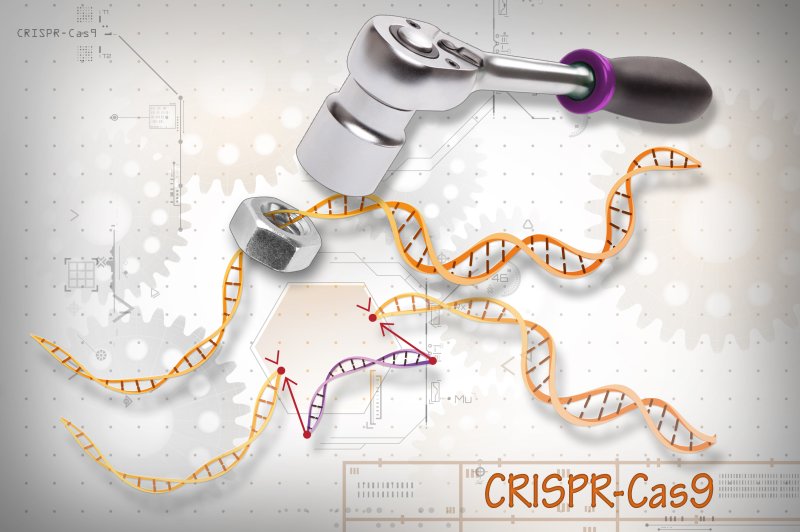The European Patent Office issued a patent today to the biopharmaceutical company Cellectis for the invention of using RNA-guided endonucleases, such as Cas9 or Cpf1 for the genetic engineering of T-cells. Photo courtesy of the National Human Genome Research Institute
Aug. 2 (UPI) -- The European Patent Office issued a patent today for the use of RNA-guided endonucleases for the genetic engineering of T-cells to Cellectis.
Cellectis is a biopharmaceutical company focused on developing immunotherapies based on gene-edited CAR T-cells, or UCART.
Dr. André Choulika, chairman and CEO at Cellectis, said his company plans to use the method of using RNA-guided endonucleases like Cas9 or Cpf1 for the genetic engineering of T-cells in research.
CRISPR stands for Clustered Regularly Interspaced Short Palindromic Repeats, and CRISPR-Cas9 is a genome editing technology which can be programmed to target specific stretches of genetic code and edit DNA at specific locations.
TALEN, or transcription activator-like effector nucleases, are restriction enzymes that can be engineered to cut specific sequences of DNA and another tool in the field of genome editing.
"We have been the first to explore the potential of CRISPR in its early days in various applications, including therapeutics and these early findings ultimately led to the grant of this new patent," Choulika told UPI.
Choulika said they plan to use CRISPR in T-cells in functional genomics to understand how genes function in T-cells.
"We like CRISPR as a research tool, but TALEN is a superior product to CRISPR as a therapeutic tool," Choulika said. "I don't think the technology is ready yet for CRISPR to be used as a therapeutic tool, but for research it's amazing."
Researchers will use the approved patent to genetically modify T-cells by adding RNA-guided endonuclease and a specific guide RNA to direct the endonuclease to at least one target in the T-cell genome.















